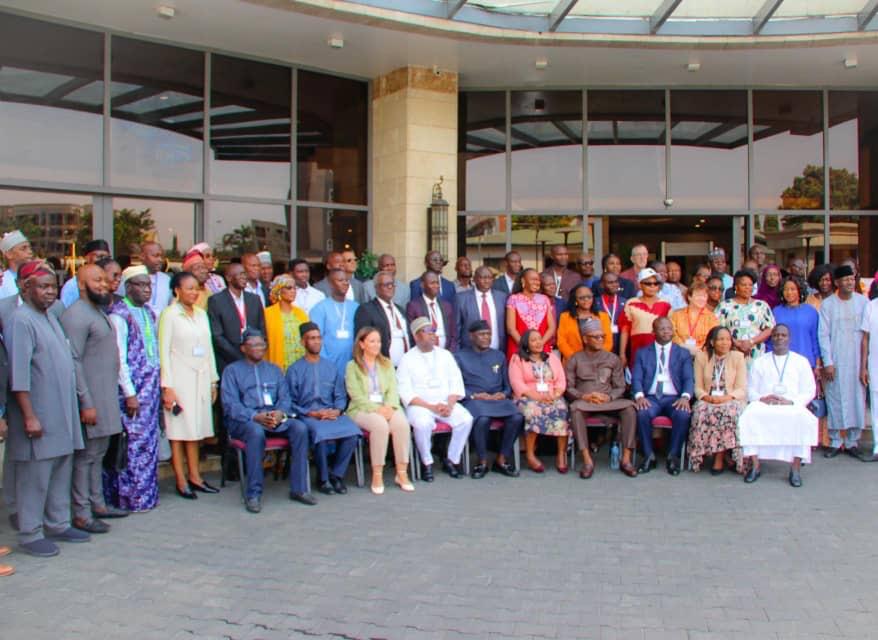
By Fatima Saka
Abuja — The Coordinating Minister of Health and Social Welfare, Professor Muhammad Ali Pate, has commended the remarkable achievements of the National Health Fellows, describing them as a new generation of innovators driving change across Nigeria’s health sector through data, technology, and community impact.
Speaking at a press briefing in Abuja on Tuesday, Professor Pate said the Fellows, a group of young Nigerian professionals deployed across the country, have demonstrated exceptional creativity and commitment to solving health system challenges, earning both national and international recognition.
“We’re very proud of the National Health Fellows,” he said. “These young men and women from all parts of the country have become so energized, so innovative, and they’re solving real problems. Some have even been recruited by top institutions abroad because of their quality. The government would be very lucky to have them enter public service.”
Pate noted that the Fellows have been instrumental in advancing health reforms at the primary care level, contributing to improved data management, accountability, and health service delivery in rural and underserved communities.
Building on the success of the inaugural cohort, the Minister announced the launch of the second phase of the National Health Fellows Programme, which is now open for recruitment. The process, he said, is transparent, merit-based, and inclusive, ensuring fair representation across Nigeria’s 774 local government areas.
“We’ve made the recruitment competitive at the local government level to ensure fairness and equity. The process is world-class, and anyone can verify the quality of those selected,” he stated.
According to Professor Pate, the programme aligns with President Bola Tinubu’s health sector renewal agenda by investing in young professionals who bring fresh perspectives, technological skills, and community insight into policy implementation.
He explained that the Fellows are deployed to various health institutions and local government areas to support critical functions such as data analytics, programme evaluation, and system strengthening, bridging the gap between policy and community-level action.
“These Fellows represent the future of Nigeria’s health system, energetic, solution-oriented, and deeply connected to their communities,” Pate said. “Their contributions are already visible in the way data is being used to track performance, identify gaps, and design better interventions.”
Some of the Fellows, he revealed, have gained international scholarships and fellowships in countries such as Italy and Malaysia due to their outstanding performance and innovative projects.
Pate emphasized that the initiative is not merely a short-term intervention but part of a broader plan to build a resilient, youth-driven health workforce capable of sustaining reforms in public health governance and service delivery.
READ ALSO: Wike Confronts Naval Officers, Vows to Stop Illegal Constructions in FCT
Lagos moves from response to mitigation phase in disaster management — LASEMA
“We are nurturing a generation that will redefine leadership in the health sector,” he said. “The National Health Fellows are a testament to what young Nigerians can achieve when given the right opportunity and mentorship.”
With the rollout of its second phase, the National Health Fellows Programme is set to expand its footprint, strengthen accountability at the local level, and further accelerate Nigeria’s progress toward a more equitable and efficient health system.





